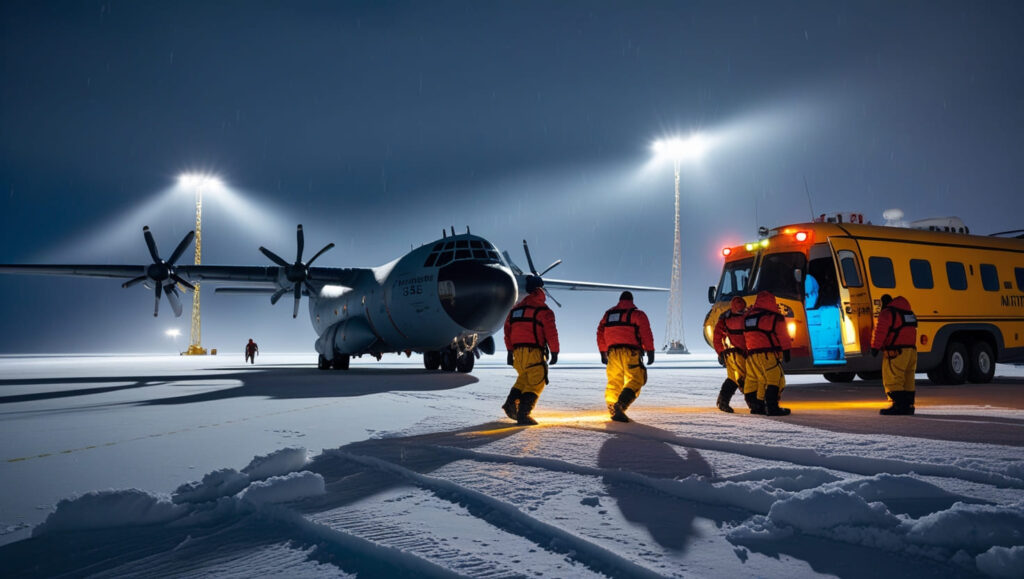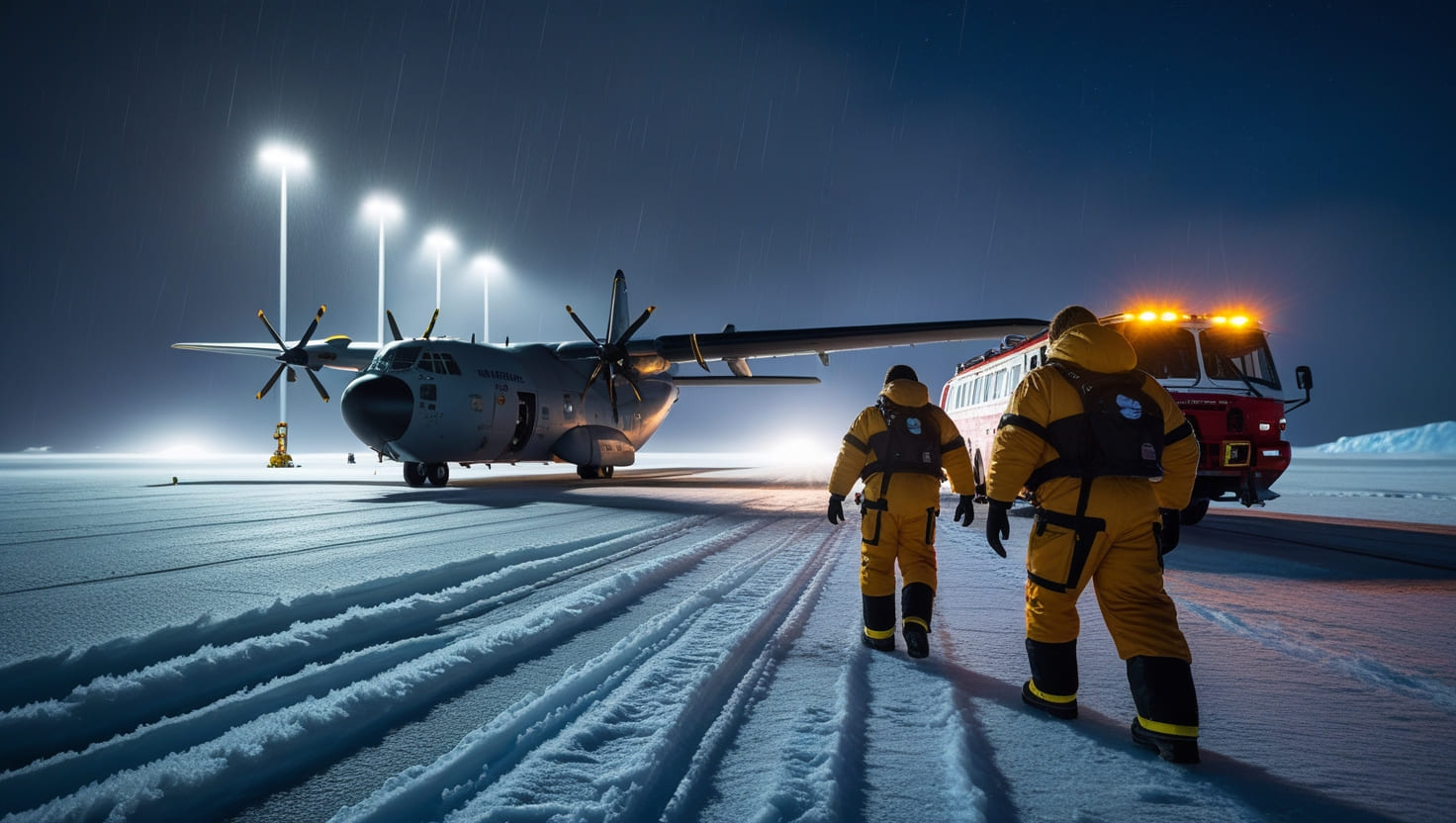❄️ Extreme Rescue: Three Evacuated Mid-Winter from Antarctic Station
In a rare and daring operation, three individuals were successfully evacuated from McMurdo Station in Antarctica during the mid-winter period when darkness and bitter cold usually ground all non-essential flights. This high-risk medical evacuation occurred after two team members suffered acute medical emergencies, forcing an unprecedented rescue mission.
Operated by the U.S. Antarctic Program, McMurdo Station is typically isolated at this time of year, making any flight a logistical and environmental challenge. Harsh weather, darkness, and the unpredictability of Antarctic conditions all posed serious risks to the evacuation crew.
🌐 Full Winter Darkness, High Risk: The Context of the Emergency
Winter in Antarctica lasts from late March to late September. During this time, temperatures plunge below –50°C, winds intensify, and perpetual night lasts for months. Station operations typically avoid any departures to reduce risks.
When two residents developed life-threatening conditions one with severe trauma from a lab accident, and another with cardiac symptoms command declared the situation critical. A third person was also identified as needing urgent care. Routine evacuation protocols were adapted on the fly.
🚁 Mission Execution: From McMurdo to Christchurch and Beyond
New Zealand authorities deployed a specialized aircrew flying modified military C-130 aircraft equipped with skis and trained for polar operations. Departing from Christchurch, the team faced navigation challenges thermally mapped via satellite to avoid weak-air zones.

One of the most difficult phases: deciding whether to refuel on the ice runway at McMurdo before departing into sub-zero darkness. Crews risked engine icing and fuel freezing. After precise coordination, they completed the refueling and took off within a narrow weather window.
All three evacuees were safely transported to Christchurch, where they received immediate medical attention. Further transfers to specialty hospitals were arranged based on their conditions.
⚠️ Why This Rescue Was So Challenging
Temperature & Darkness
The Antarctic mid-winter presents near-complete darkness with minus-50°C wind chills. Maintaining operability within the aircraft and refuel station posed severe risk of human and equipment freezes.
Limited Infrastructure
McMurdo Station’s ice runway, while functional, offers minimal support in winter. Fuel pumps, heating systems, and navigation aids are often offline, requiring crews to rely on pre-positioned reserves and emergency protocols.
Psychological & Physical Demands
Crew members worked in rotating shifts to conquer exhaustion, hypothermia risk, and mental strain. Both evacuees and rescuers coped with extreme isolation and uncertainty during the evacuation window.
🌍 Implications for Antarctic Operations & Safety Protocols
This mission sets a new precedent in Antarctic emergency response. It demonstrates:
- The ability to conduct rapid medical evacuations even during Antarctica’s harshest months.
- Need for robust pre-deployed fuel caches and emergency medical staging on remote bases.
- Expanded roles for international cooperation here, New Zealand led the rescue flight despite the victims being Americans.
Moving forward, Antarctic programs may revise winter isolation protocols and increase local medical capacity to reduce dependency on external rescues.
🧷 Summary Table: Key Facts
| Topic | Details |
|---|---|
| Evacuation date | Mid-winter period (likely July 2025) |
| Aircraft used | C-130 with ski landing gear from New Zealand |
| Conditions | –50 °C and continuous darkness |
| Personnel evacuated | Three individuals with severe medical needs |
| Flight base | Christchurch to McMurdo and back |
| Outcome | Safe arrival back to New Zealand, stabilized in hospitals |
🛡️ What This Means for Future Safety Planning
- All Antarctic programs should consider winter medical readiness as a year-round necessity.
- Pre-positioning of portable medical teams and fuel caches could enhance resilience.
- International cooperation between nations operating in Antarctica remains crucial for emergencies.
- Psychological and logistic training for extreme conditions should become standard for all station personnel.
Stay connected with TrendScoop360 for more updates on this story and other trending news across the United States and the world.

